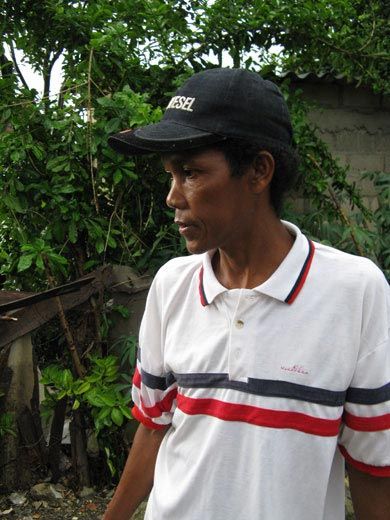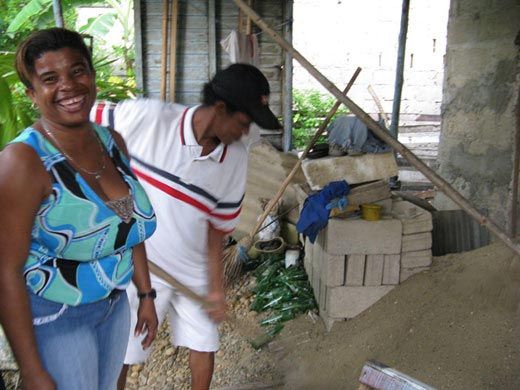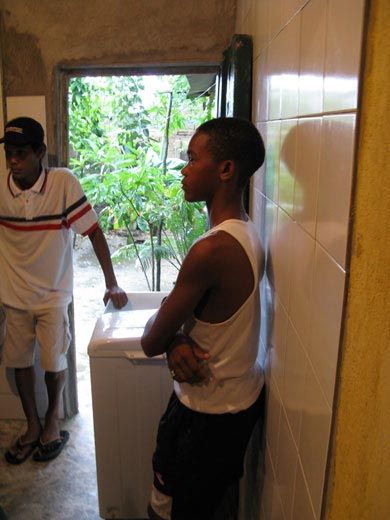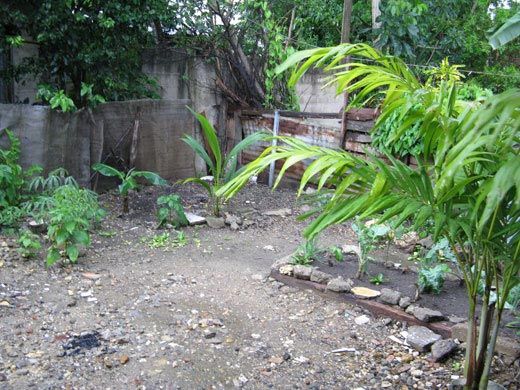Colombia Dispatch 3: The Pedro Romero Program
The government’s attempts to battle poverty reach communities of refugees from violence in the countryside
/https://tf-cmsv2-smithsonianmag-media.s3.amazonaws.com/filer/romero_631.jpg)
Perched along the Caribbean, Cartagena attracts busloads of tourists who enjoy the quaint colonial streets of the historic downtown. The city is surrounded by centuries-old walls built by the Spanish to keep out pirates and other invaders. Today, the city of nearly a million inhabitants is also ringed by slums and plagued by gangs, prostitution and drug dealers.
Maria Bernarda Perez, my guide for my trip to el Pozon and the coordinator of the city's emergency social development program, hopes to change that. After spending the last 15 years working for the city's poor, she's hopeful that the new mayor's "Pedro Romero" program can finally make a difference. The new program aims to overcome poverty in the city Bernarda tells me, a difficult goal considering that nearly a quarter of the population lives on less than $2 a day in what Cartagena defines as "extreme poverty."
Bernarda has become a popular figure among Cartagena's poor. Everywhere she goes residents shout hello or come up to ask for advice. She cheerfully takes me to visit one of the city's poorest neighborhoods to see the new social program in action. It's a 45-minute drive from downtown, past the bustling port and through neighborhoods of crumbling concrete houses with roofs of corrugated iron. The streets are a chaotic mass of trucks, bicycles, motorcycles and cars that constantly beep their horns.
We turn onto a bumpy dirt road in El Pozon, a vast slum on the outskirts of the city. There, Bernarda introduces me to Hector Salgado, a slight, soft-spoken man of 49. Like many of his neighbors, Salgado fled violence in his countryside village and landed in one of Cartagena's cheapest neighborhoods. As a hard rain starts to pour outside, Salgado invites me into his modest concrete home, explaining that he left the small rural town of Santo Domingo two years ago with his girlfriend, Marisol Cardales Berrio, and their three sons. He works unloading bags of goods at a nearby market, earning about $10 on a good day.
With abundant crops, Salgado says, it was easier to make ends meet in the countryside. But Cardales says she could never sleep well there, constantly fearing the chaotic violence in the village. Armed groups would appear and she wouldn't know if it was the guerrillas or the paramilitaries. "That's not a way to live," she remembers. The guerrillas shut down the school so often that their 20-year-old son Jeder still has four years before he graduates high school.
But at least the government's program has provided hope for their new life in Cartagena, Cardales says. Their kitchen and bathroom, once worn concrete, now gleams with clean, white ceramic tile provided by the Pedro Romero program. Salgado took business classes through the program, leading him to buy a washing machine so they can wash clothes for neighbors. They also earn extra money selling cold beer out of their refrigerator on the weekends, and Jeder pitches in after school repairing worn shoes. In their small dirt yard, they planted vegetables alongside young mango and banana trees, part of the "productive patios" plan that the government hopes will help end the rampant malnutrition among households that eat mainly rice.
Bernarda says that after years of indifferent administrations, Cartagena's new mayor, Judith Pinedo, has made combating poverty a priority. The Pedro Romero program works with local nonprofit groups and federal programs already in place. It's an extensive plan, covering everything from health to education to business. Because truancy is a big problem, families with children who attend school regularly receive a monthly check. Micro credit programs help people start their own business. Assessors regularly check up on families to make sure they are progressing. Battling poverty in Cartagena, with its extensive slums and influx of refugees, is a formidable task that nobody has been able to tackle. Still, at least some may benefit now. "I am so thankful for this program," Cardales tells me as I leave her home. "This has helped us a lot. It has been a miracle."



